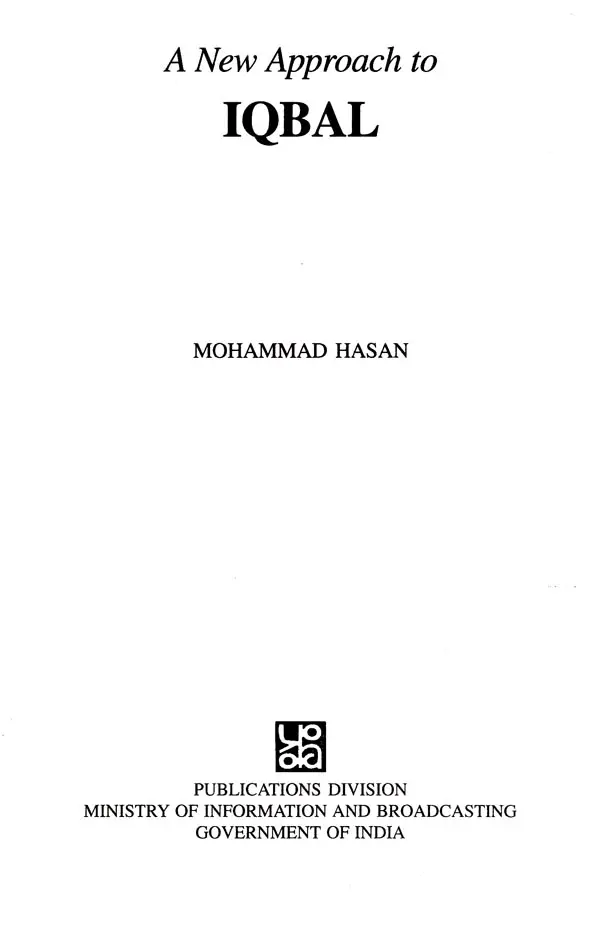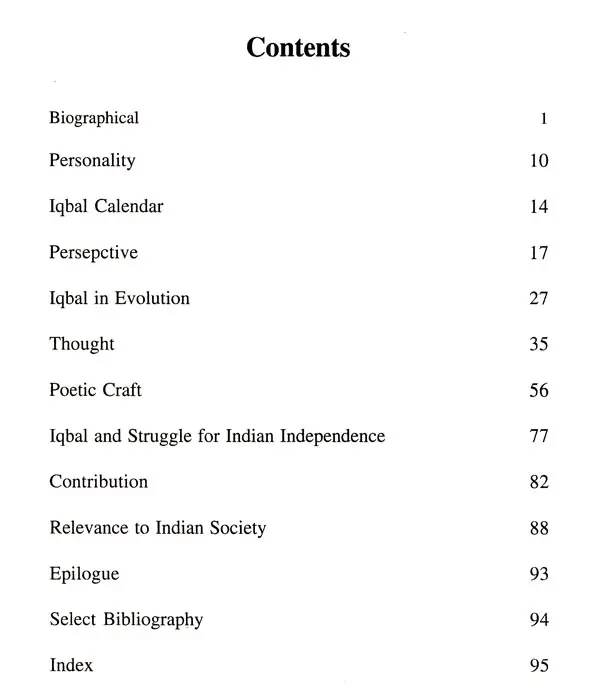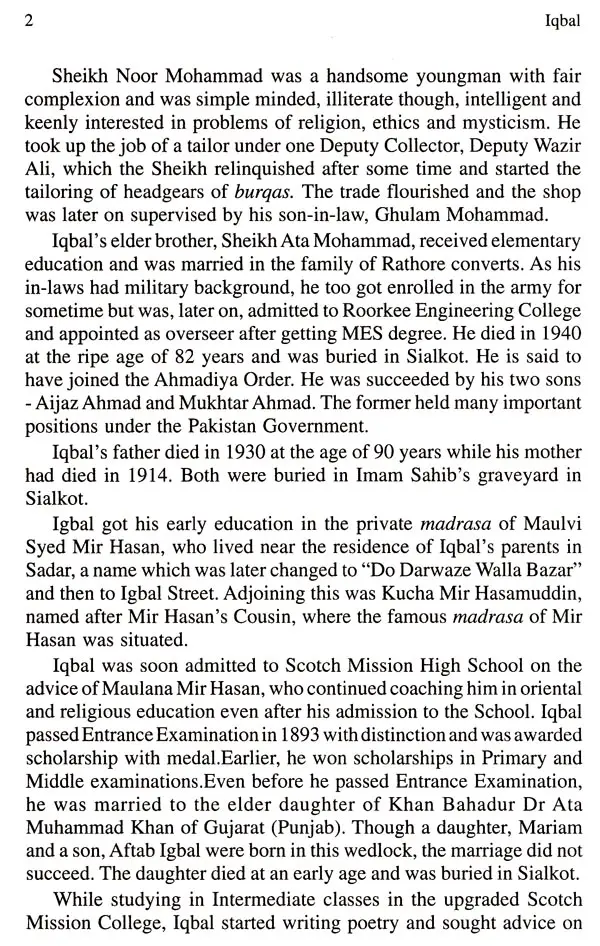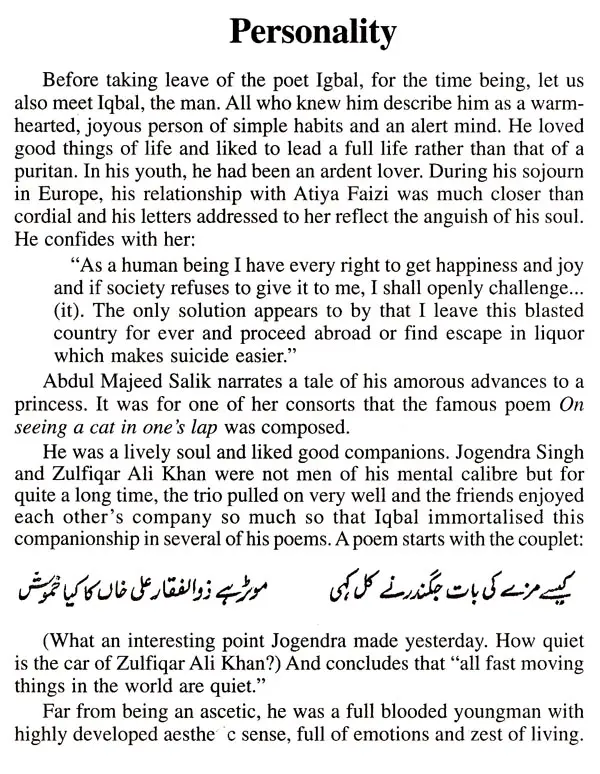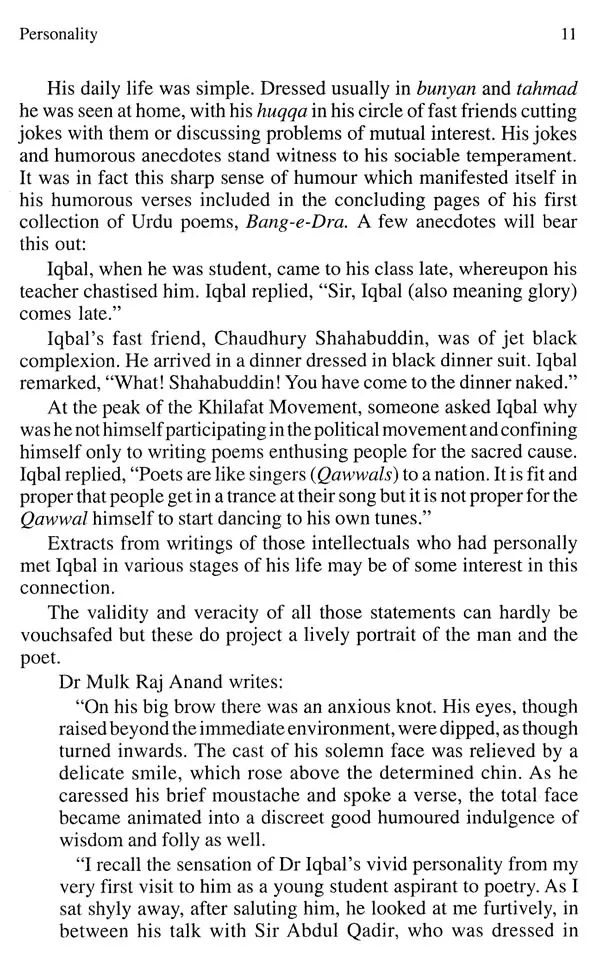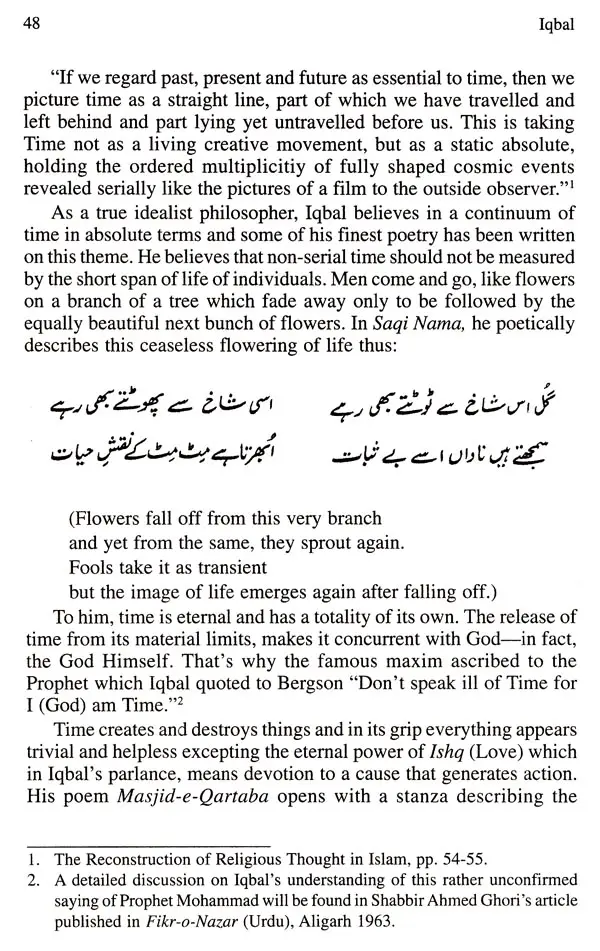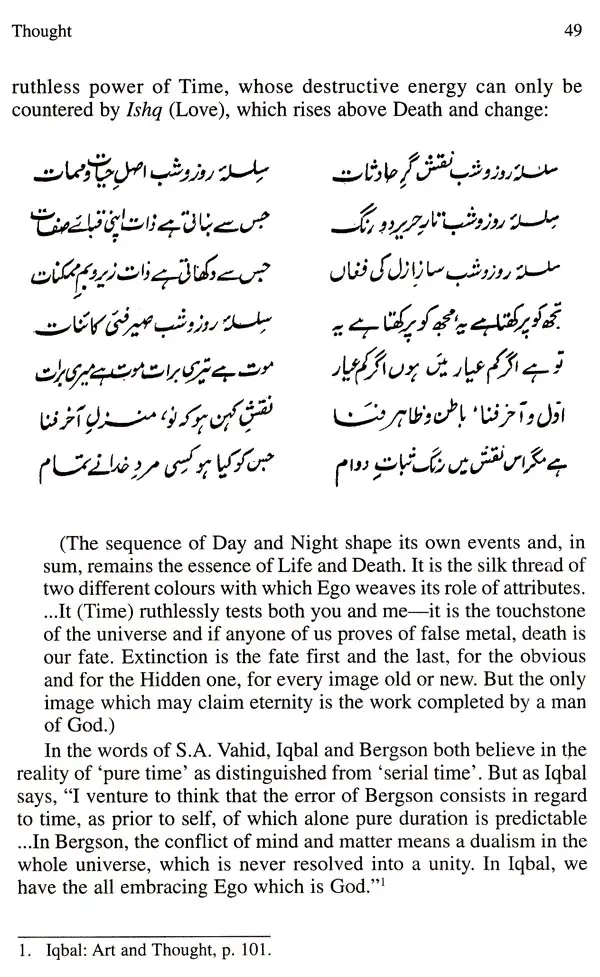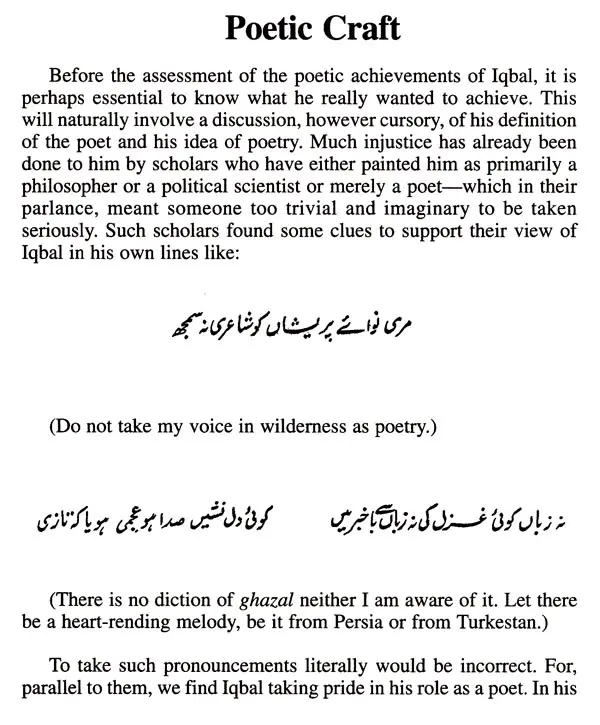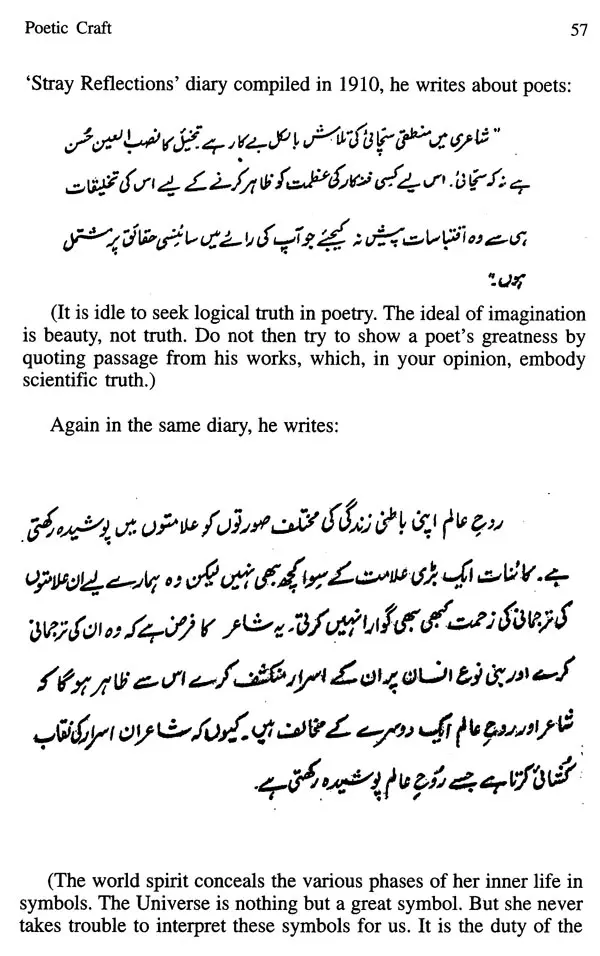
A New Approach to Iqbal
Book Specification
| Item Code: | UAQ680 |
| Author: | Mohammad Hasan |
| Publisher: | Publications Division of Ministry of Information and Broadcasting |
| Language: | English and Urdu |
| Edition: | 2012 |
| ISBN: | 9789123017631 |
| Pages: | 106 |
| Cover: | PAPERBACK |
| Other Details | 8.50 X 5.50 inch |
| Weight | 150 gm |
Book Description
Iqbal fancied himself as the 'nightingale' of the garden of his motherland. He considered India as the torch-bearer to the world. His poetry reflects myraid moods during the stuggle against imperialist British rule. The book explores multiple facets of his personality and analyses how these were moulded by the socio-historical factors of the time. It also discusses how his work and outlook influenced the contemporary ethos.
This book by Dr. Mohammad Hasan, a renowned scholar and author who taught at Delhi's Jawaharlal Nehru University, is a work of great literary merit. It helps readers get a deeper understanding and appreciation of the work of the great poet-Philosopher.
Iqbal once wrote, "Even Iqbal does not know Iqbal." If a pun on the word Iqbal, which also means glory, is not intended, the couplet may well be taken as referring to the difficulties of understanding one's self. Even everyman is a mystery, much more so, a poet. When understanding himself is such a complicated task for a poet himself, how much more difficult it will be for a critic, who tries to acquaint himself with the poet in a changed context.
Iqbal has often been painted in black and white. To many he is a hero a poet-philosopher whose poetry and thought remain flawless expressions of the Bergsonian Life Force. To others, he remains a nodding Homer, whose erratic thinking led to the partition of the Indian sub-continent. The present writer refuses to project him as either. Iqbal was much too complex a personality for such simplifications.
Undoubtedly, he ranks among the greatest poets of all ages. His melody not only vibrates with the verve and vitality of his own personality but also with the aspirations and longings of his country, desperately struggling against political enslavement and social and cultural degradation. Again, he was one of the first Indian poets who dreamt of the liberation of Asia and clearly visualised a historic role for the continent in the emancipation of mankind. For Iqbal, Asia alone could provide the spiritual guidance to a universe lost in pursuance of material happiness.
**Contents and Sample Pages**
